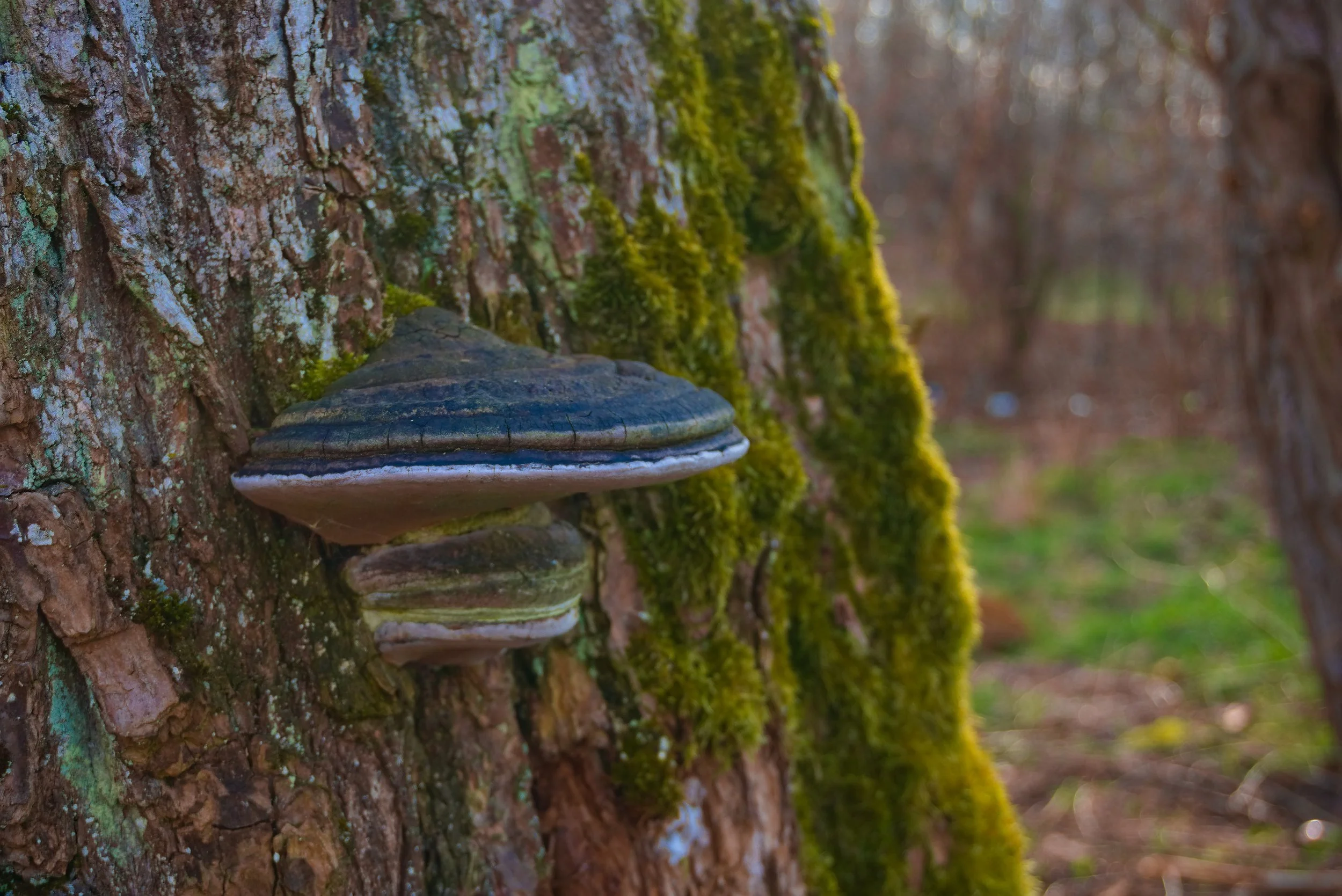What is Chaga?
Chaga, a type of mushroom that grows primarily in colder regions, has gained popularity in recent years due to its potential health benefits. It is a parasitic fungus that grows on birch trees and is characterized by its black, hard, and crusty appearance. While it may not be the most attractive of mushrooms, the Chaga mushroom is highly valued for its potential to improve overall health and wellness. Chaga mushrooms have been used for centuries in traditional medicine to treat a range of ailments, including digestive issues, skin conditions, and inflammation. It is also commonly used as a natural immune booster and may have anti-cancer and anti-inflammatory properties. Chaga benefits are also due its rich antioxidant content, which may help to prevent damage caused by free radicals in the body. This unique mushroom has been the subject of numerous scientific studies, and in this blog, we will explore five ways that chaga can boost your overall health and wellness, backed by the latest research. Whether you are looking to improve your immune function, reduce inflammation, or support your overall well-being, Chaga may just be the natural remedy you've been searching for.
5 Chaga Health Benefits for Any Lifestyle
1. May Reduce Signs of Aging
Chaga may slow the process of aging. When free radicals accumulate in our bodies, one of the ways in which we suffer is through the skin, especially in regard to premature aging. One study illustrated that Chaga had protective effects against oxidative stress-induced death of cells and premature deterioration in human fibroblasts, both of which are key biological processes underlying aging [1]. Additionally, Chaga was able to suppress UV-induced morphologic skin changes, such as skin thickening and wrinkle formation, protecting the skin from sun-induced aging [1]. Chaga was also found to increase collagen synthesis by inhibiting MMP-1 and MMP-9 activities; these are matrix metalloproteinases that degrade different types of collagens in the body [1,2]. This is significant because, as we age, our bodies produce less collagen which can lead to increased drying of skin and formation of wrinkles.
2. Can Help Fight Inflammation
Inflammation is the body’s natural response against certain physical, chemical, or biological stimuli. In moderate amounts, acute inflammation is beneficial to our healing processes and help us defend against foreign pathogens. However, if inflammation becomes persistent and chronic, it can affect multiple bodily systems and lead to various health conditions. One study found that treatment of colitis with Chaga decreased the expression of TNF-alpha [3]. TNF-alpha is a pro-inflammatory cytokine and concentrations have been found to be elevated in those with conditions such as inflammatory bowel disease [3].
Chaga’s anti-inflammatory effects may also be due to the inhibition of inducible NO synthase (iNOS) and COX-2 expression via down-regulation of NF-kB activity [3]. When inflammation is occurring in the body, this can induce expression of COX-2 and iNOS at the sites of inflammation. This often leads to an increase in the level of inflammation, pain, swelling, and other associated signs and symptoms [3]. The COX-2 enzyme is one of the most common targets for anti-inflammatory pharmaceuticals. COX-2 inhibitors are a subgroup of non-steroidal anti-inflammatory drugs (NSAIDs) that treat pain and inflammation in many conditions, such as arthritis. Thus, it seems that Chaga may act similarly to pharmaceuticals, and likely with very little side effects in comparison.
Polysaccharides in Chaga were able to inhibit nitric oxide (NO) production [4]. This is significant because NO is an important contributor to the inflammatory processes in the body and measuring the level of NO is a way in which we can gauge the level of inflammation that is occurring in the body [4].
3. May Protect and Reduce DNA Damage
UVA and UVB radiation have the potential to indirectly damage the DNA in our skin cells and result in genetic defects or mutations that may progress to premature aging, or even skin cancer [5]. We know of the importance of daily sunscreen wear, but even skin that is not commonly exposed to the sun (i.e., the back) can accumulate genomic DNA changes from UV radiation [6]. One study assessed the effect of Chaga on the extent of DNA damage that can occur with UV exposure and found that the treatment group experienced less damage to genetic information in cells because polysaccharides extracted from the mushroom were able to enhance the expression of DNA repair genes [7]. This means that Chaga has the potential to reduce DNA damage that may occur as a result of frequent sun exposure.
4. High Antioxidant Value
Oxidative stress is an imbalance between the level of free radicals and antioxidants in the body. When free radicals overpower our antioxidant systems, it may result in cellular damage and progress to a disease state. Oxidative stress can activate inflammatory mediators and further exacerbate the inflammatory process of several medical conditions. Compounds with high antioxidant activity, such as the phenolic compounds that can be found in Chaga, can combat this oxidative stress [4].
Chaga has one of the highest ORAC (Oxygen Radical Absorbance Capacity) values on the planet! ORAC informs us on the ability of a substance to neutralize free radicals so that they do not overpower our antioxidant capabilities and cause oxidative stress.
5. May Help Slow the Growth of Cancer
The mushroom extract of Chaga illustrated significant tumor suppressive effects in a study completed on mice models [8]. In tumor-bearing mice, tumor reduction of 60% was seen while in metastatic mice, there was a decrease of 25% in the number of nodules [8]. Inhibition of vascularization and an increase in tumor agglomeration was also seen with the use of Chaga [8]. The study hypothesizes that long-term and persistent intake of Chaga may suppress tumorigenesis by supporting normal metabolic reactions, such as thermogenesis, inducing cancer cell death, and improving chronic inflammation [8].
In another study on breast cancer cells, Chaga induced autophagy by activating AMPK and inhibiting the mTOR signaling pathway [9]. In cancer cells, autophagy may suppress tumorigenesis by inhibiting survival of cancer cells and inducing cell death [10].
Are There Any Side Effects of Chaga Mushrooms?
Chaga mushroom is generally considered safe for most people when consumed in moderate amounts as a food or dietary supplement. However, some individuals may experience side effects, particularly if they consume large amounts of Chaga or if they have certain health conditions [11].
Chaga contains oxalates, which can contribute to kidney stones in susceptible individuals. It may also interact with certain medications, such as blood thinners or diabetes medications. Additionally, some people may experience gastrointestinal discomfort, such as bloating, gas, or diarrhea, when consuming Chaga in large amounts.
It is always recommended to consult with a healthcare provider before taking any new supplement if you have a pre-existing medical condition or are taking any medications. If you experience any adverse effects after taking Chaga, discontinue use and consult with a healthcare provider.
How Much Chaga Should You Take?
There is no one-size-fits-all answer to how much Chaga supplement one can take per day, as the ideal dosage may vary depending on various factors, such as age, weight, health status, and the reason for use. It is important to follow the manufacturer's recommended dosage on the product label or as advised by a healthcare provider. It is best to start with a lower dosage and gradually increase it as needed while monitoring for any adverse effects.
Where to Buy Quality Chaga Mushroom Products?
Although the market for functional mushrooms is wide, it is important to be mindful of what is inside of the products you are buying. If you find the words “full spectrum”, “mycelial biomass”, or “extracellular compounds” on the label, this means the product is made with the substrate the mushrooms are grown on, adding filler into your product.
As for mushrooms in Canada, Eversio Wellness carries 100% fruiting body only mushroom extracts, and they consistently practice transparency to their consumers by sharing the COAs (Certificate of Analysis) of each product. The COAs reassure consumers that the percentage of compounds that are claimed to be in the products is scientifically confirmed through lab testing. Eversio Wellness also tests the heavy metal and microbial contents so you can be sure that your mushroom product is safe. There is no better time than now to buy mushrooms in Canada online!
Eversio Wellness carries Chaga mushroom extract capsules composed of 29% of beta-D-glucans, 24% of triterpenes, and 3.76% of betulinic acid that is made 100% from fruiting body only, ensuring there are no fillers in your product.
We hope you have found this article informative. If you have any questions or comments, please feel free to leave them in the comment section below!
By Silvana Jakupovic — BSc and 4th Year Student of Naturopathic Medicine (CCNM-Boucher)
References:
[1] Yun JS, Pahk JW, Lee JS, Shin WC, Lee SY, Hong EK. Inonotus obliquus protects against oxidative stress-induced apoptosis and premature senescence. Mol Cells. 2011 May;31(5):423-9. doi: 10.1007/s10059-011-0256-7. Epub 2011 Feb 22. PMID: 21359681; PMCID: PMC3887607.
[2] Vincenti, M.P., Brinckerhoff, C.E. Transcriptional regulation of collagenase (MMP-1, MMP-13) genes in arthritis: integration of complex signaling pathways for the recruitment of gene-specific transcription factors. Arthritis Res Ther 4, 157 (2002). https://doi.org/10.1186/ar401
[3] Choi SY, Hur SJ, An CS, Jeon YH, Jeoung YJ, Bak JP, Lim BO. Anti-inflammatory effects of Inonotus obliquus in colitis induced by dextran sodium sulfate. J Biomed Biotechnol. 2010;2010:943516. doi: 10.1155/2010/943516. Epub 2010 Mar 10. PMID: 20300439; PMCID: PMC2840610.
[4] Alhallaf W, Perkins LB. The Anti-Inflammatory Properties of Chaga Extracts Obtained by Different Extraction Methods against LPS-Induced RAW 264.7. Molecules. 2022 Jun 30;27(13):4207. doi: 10.3390/molecules27134207. PMID: 35807453; PMCID: PMC9268247.
[5] UV radiation. The Skin Cancer Foundation. (2022, July 21). Retrieved November 3, 2022, from https://www.skincancer.org/risk-factors/uv-radiation/
[6] ScienceDaily. (2021, January 14). Even skin shielded from the sun accumulates genomic DNA changes from UV light. ScienceDaily. Retrieved November 3, 2022, from https://www.sciencedaily.com/releases/2021/01/210114163929.htm
[7] Eid JI, Al-Tuwaijri MM, Mohanty S, Das B. Chaga mushroom (Inonotus obliquus) polysaccharides exhibit genoprotective effects in UVB-exposed embryonic zebrafish (Danio rerio) through coordinated expression of DNA repair genes. Heliyon. 2021 Feb 4;7(2):e06003. doi: 10.1016/j.heliyon.2021.e06003. Erratum in: Heliyon. 2021 Jun 08;7(6):e07235. PMID: 33598573; PMCID: PMC7868817.
[8] Arata S, Watanabe J, Maeda M, Yamamoto M, Matsuhashi H, Mochizuki M, Kagami N, Honda K, Inagaki M. Continuous intake of the Chaga mushroom (Inonotus obliquus) aqueous extract suppresses cancer progression and maintains body temperature in mice. Heliyon. 2016 May 12;2(5):e00111. doi: 10.1016/j.heliyon.2016.e00111. PMID: 27441282; PMCID: PMC4946216.
[9] Lee MG, Kwon YS, Nam KS, Kim SY, Hwang IH, Kim S, Jang H. Chaga mushroom extract induces autophagy via the AMPK-mTOR signaling pathway in breast cancer cells. J Ethnopharmacol. 2021 Jun 28;274:114081. doi: 10.1016/j.jep.2021.114081. Epub 2021 Mar 30. PMID: 33798660.
[10] Yun CW, Lee SH. The Roles of Autophagy in Cancer. Int J Mol Sci. 2018 Nov 5;19(11):3466. doi: 10.3390/ijms19113466. PMID: 30400561; PMCID: PMC6274804.
[11] https://www.webmd.com/diet/health-benefits-chaga-mushrooms

